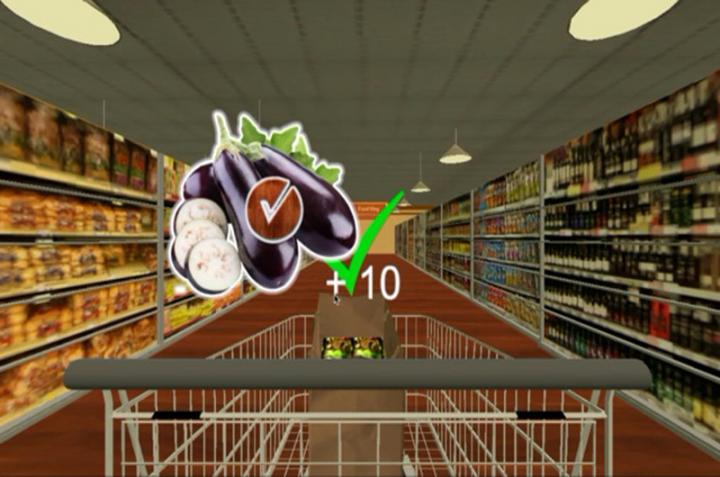A computer game can be used to train its players to eat less sugar to reduce weight and improve health

Credit: Drexel University
More than half of American adults consume excess added sugars, according to the U.S. Department of Health and Human Services. Major dietary guidelines recommend limiting foods high in added sugars. A recent study led by Evan Forman, PhD, a psychology professor in Drexel University’s College of Arts and Sciences, shows that a computer game can be used to train its players to eat less sugar, as way of reducing their weight and improving their health.
“Added sugar is one of the biggest culprits of excess calories and is also associated with several health risks including cancer,” said Forman, who also leads the Center for Weight, Eating and Lifestyle Science (WELL Center) at Drexel. “For these reasons, eliminating added sugar from a person’s diet results in weight loss and reduced risk of disease.”
As part of their study, which was recently published in the Journal of Behavioral Medicine, the researchers developed and evaluated a “brain training” game targeting the part of the brain that inhibits impulses with the hope that it would improve diet, specifically by decreasing the consumption of sweet foods. Think: Lumosity for your diet.
“Cognitive, or ‘brain, training’ games have been used to help people reduce unhealthy habits, like smoking,” said Forman. “We were also seeing positive results from labs using computer training programs.”
This research is the first to examine the impact of this type of “highly personalized and/or gamified inhibitory control training” on weight loss using repeated, at-home trainings, according to Forman.
Forman’s group conceptualized a game based on cognitive training and worked with Michael Wagner, a professor and head of the Digital Media department in Drexel’s Westphal College of Media Arts & Design, and a group of digital media students to develop it into a computer-based game, called “Diet DASH,” for purposes of the study.
The game automatically customized the training to focus on the sweets that each participant tended to eat and adjusted the difficulty according to how well they were resisting the temptation of sweets.
The trial randomized 109 participants who were overweight and ate sweets. Participants attended a workshop prior to starting the game to help them understand why sugar is detrimental to their health and to learn which foods to avoid and methods for doing so.
“The workshop helped give participants strategies for following a no-sugar diet. However, we hypothesized that participants would need an extra tool to help manage sweets cravings,” said Forman. “The daily trainings could make or break a person’s ability to follow the no-added sugar diet. They strengthen the part of your brain to not react to the impulse for sweets.”
Participants then played the game on a computer for a few minutes every day for six weeks and then again once a week for two weeks.
In the game, players move as quickly as possible through a grocery store with the goal of putting the correct food (healthy foods) in a grocery cart, while refraining from choosing the incorrect foods (their preferred sweet). Points were awarded for correct items placed in carts.
For over half of the participants, who showed higher preferences toward sweets, playing the game helped them lose as much as 3.1 percent of their body weight over eight weeks. Participants also indicated that they found the daily training satisfactory, that it became part of their daily routine and that they wished to continue the trainings if they were available.
“The study’s findings offer qualified support for the use of a computerized cognitive training to facilitate weight loss,” said Forman.
The study also randomized whether participants received a highly gamified (enhanced graphics and sounds) or a less-gamified versions of the training. While the difference between the level of gamification did not matter, overall, to whether participants reduced sugar consumption and lost weight, they did find that the few men in the study reacted better to the highly gamified version than the women in the study. The WELL Center is now conducting a new trial with the highly gamified version of this training specifically for men and is actively recruiting participants.
The study, “Computerized Neurocognitive Training for Improving Dietary Health and Facilitating Weight Loss,” was funded by the National Cancer Institute. It was published in the Journal of Behavioral Medicine in March 2019. Co-authors include Stephanie Manasse, PhD; Meghan Butryn, PhD; Adrienne Juarascio, PhD; Diane Dallal, doctoral student; Rebecca Crochiere, doctoral student; and Caitlin Loyka, masters student, of Drexel University.
For more information about “Diet Dash,” the WELL Center and its programs, visit drexel.edu/wellcenter.
###
Media Contact
Annie Korp
[email protected]
Original Source
https:/
Related Journal Article
http://dx.




